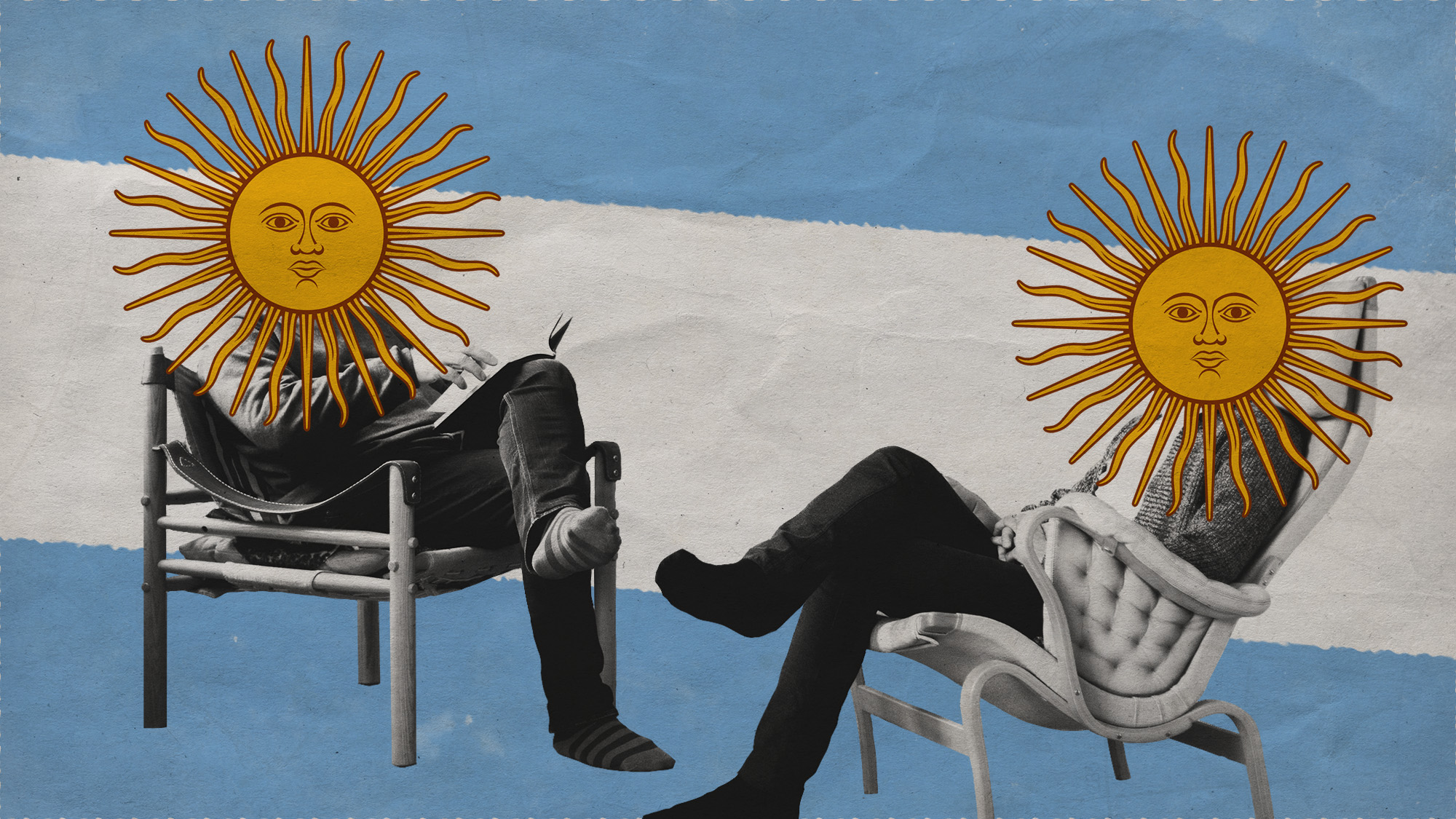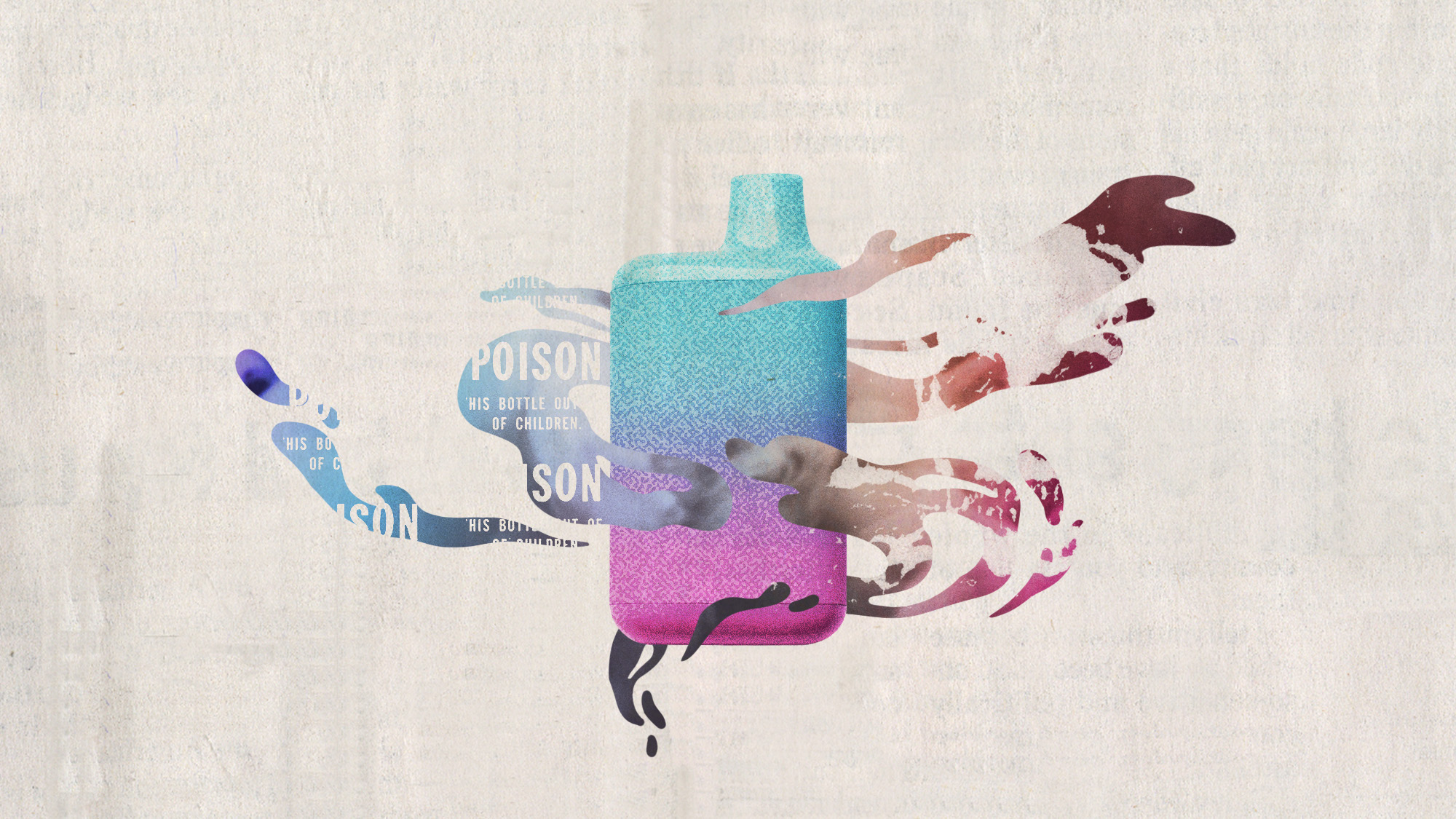Argentina: the therapy capital of the world
Buenos Aires natives go hungry to pay for psychoanalysis, amid growing instability, anxiety – and societal acceptance

A free daily email with the biggest news stories of the day – and the best features from TheWeek.com
You are now subscribed
Your newsletter sign-up was successful
Many people, when asked what country is "the therapy capital of the world", might reasonably guess the United States, thanks to navel-gazing La La Land, or neurotic New York.
But the answer is Argentina. According to 2016 data from the World Health Organization, it had 222 psychologists per 100,000 people; the US had 30. But the high supply of psychologists, especially in the cosmopolitan capital of Buenos Aires, can barely cope with demand, said Drew Ambrose, presenter of "Mindset", Al Jazeera's video series on mental health.
"We are very peculiar in Argentina," one Buenos Aires resident told Ambrose. "Everybody goes to the psychologist."
The Week
Escape your echo chamber. Get the facts behind the news, plus analysis from multiple perspectives.

Sign up for The Week's Free Newsletters
From our morning news briefing to a weekly Good News Newsletter, get the best of The Week delivered directly to your inbox.
From our morning news briefing to a weekly Good News Newsletter, get the best of The Week delivered directly to your inbox.
'A very important battle was won'
Porteños (residents of Buenos Aires) "don't have the same stigma about seeking mental health treatment as Americans", said CNN. Mental health is seen as just another aspect of wellness, along with fitness and nutrition. "In Argentina a very important battle was won, which was giving space to emotional health," said Gabriel Rolón, a psychoanalyst and author.
And what a battle it has been. Over the past 100 years, Argentina went from being seen as a paragon of stability and success to brutal military dictatorship, experiencing violent coups and, at the turn of the century, economic collapse. Although reported rates of anxiety, depression and psychological illnesses have risen sharply all over the world since the Covid-19 pandemic, Buenos Aires endured the world's longest continuous lockdown – of 234 days, in 2020.
In the past two years alone, the country has endured intense political instability and an inflation rate that hit 211% at the end of 2023, largely thanks to the shock election of far-right President Javier Milei last autumn.
The self-described anarcho-capitalist, chainsaw-wielding economist beat both establishment coalitions with the promise of an economic panacea. Ironically, his election provoked the sharp devaluation of the peso. At the time of writing, four in 10 Argentinians live in poverty, a rate that has been rising.
A free daily email with the biggest news stories of the day – and the best features from TheWeek.com
'The paradox of Buenos Aires'
Some Argentinians are actually going hungry to pay for therapy, reported Phoebe Hennell in The Times last summer, seeing it as better value nourishment than food amid such high inflation.
"We have to focus on the short term," said Renata Anelli, 21, who skips two meals a week to make up the cost of her sessions, "so we spend our money on overpriced psychoanalysis that will get us through the week."
It is the "paradox of Buenos Aires", Gabriela Goldstein, president of the Psychoanalytical Association of Argentina, told the paper. "In the middle of a brutal economic crisis, [both] during and after the pandemic, consultations are on the rise."
Buenos Aires is also the only city where psychoanalysis, popularised by Sigmund Freud, remains the most popular form of therapy. The practice, which explores the unconscious mind via dreams and childhood memories, took the world by storm in the 1960s, but is now "viewed as somewhat obsolete" elsewhere in the world, said CNN. But more holistic, physical forms of group therapy are growing in popularity in the city.
In 2004, maestros of the nation's two passions, psychology and tango, joined hands in Buenos Aires to create what became known as "psicotango" – part group dance class, part meditation. "Tango remains from its origins as a hug, an embrace, to rescue us from pain and loneliness, central pathologies of consumer society," said the founders.
Milei's 'shock therapy'
Even the Pope, born in Buenos Aires, is "not immune to the national pastime", said Hennell. When Pope Francis was still known as Jorge Mario Bergoglio, he visited a psychoanalyst for six months at the age of 42 – a process that he said left him feeling spiritually "free".
Therapy itself isn't free – but to put it in context, the price of one session last August was 5,600 pesos (roughly £15.86). It had been 3,300 pesos in January. The question is, how quickly will that price rise again?
In December, the new president unveiled what he called a "shock therapy" economic plan – which, Reuters explains, "will likely hurt Argentines" rather than heal them. The high rate of inflation isn't coming down any time soon.
This week, Milei faces the first major challenge to his radical "shock therapy" legislation, with the unions preparing for a general strike and protest on Wednesday. Argentinians' need for therapy is set to continue.
Harriet Marsden is a senior staff writer and podcast panellist for The Week, covering world news and writing the weekly Global Digest newsletter. Before joining the site in 2023, she was a freelance journalist for seven years, working for The Guardian, The Times and The Independent among others, and regularly appearing on radio shows. In 2021, she was awarded the “journalist-at-large” fellowship by the Local Trust charity, and spent a year travelling independently to some of England’s most deprived areas to write about community activism. She has a master’s in international journalism from City University, and has also worked in Bolivia, Colombia and Spain.
-
 The year’s ‘it’ vegetable is a versatile, economical wonder
The year’s ‘it’ vegetable is a versatile, economical wonderthe week recommends How to think about thinking about cabbage
-
 Moltbook: The AI-only social network
Moltbook: The AI-only social networkFeature Bots interact on Moltbook like humans use Reddit
-
 Judge orders Washington slavery exhibit restored
Judge orders Washington slavery exhibit restoredSpeed Read The Trump administration took down displays about slavery at the President’s House Site in Philadelphia
-
 Epstein files topple law CEO, roil UK government
Epstein files topple law CEO, roil UK governmentSpeed Read Peter Mandelson, Britain’s former ambassador to the US, is caught up in the scandal
-
 Mexico’s vape ban has led to a cartel-controlled black market
Mexico’s vape ban has led to a cartel-controlled black marketUnder the Radar Cartels have expanded their power over the sale of illicit tobacco
-
 Iran and US prepare to meet after skirmishes
Iran and US prepare to meet after skirmishesSpeed Read The incident comes amid heightened tensions in the Middle East
-
 Israel retrieves final hostage’s body from Gaza
Israel retrieves final hostage’s body from GazaSpeed Read The 24-year-old police officer was killed during the initial Hamas attack
-
 China’s Xi targets top general in growing purge
China’s Xi targets top general in growing purgeSpeed Read Zhang Youxia is being investigated over ‘grave violations’ of the law
-
 Panama and Canada are negotiating over a crucial copper mine
Panama and Canada are negotiating over a crucial copper mineIn the Spotlight Panama is set to make a final decision on the mine this summer
-
 Why Greenland’s natural resources are nearly impossible to mine
Why Greenland’s natural resources are nearly impossible to mineThe Explainer The country’s natural landscape makes the task extremely difficult
-
 Iran cuts internet as protests escalate
Iran cuts internet as protests escalateSpeed Reada Government buildings across the country have been set on fire